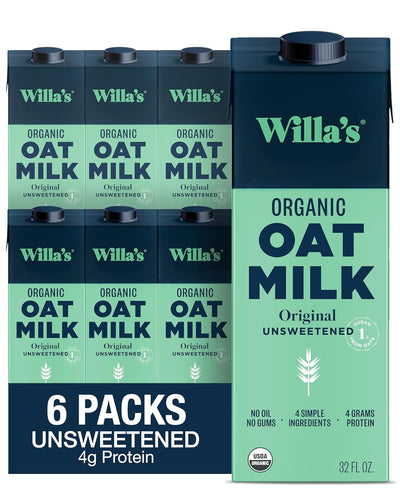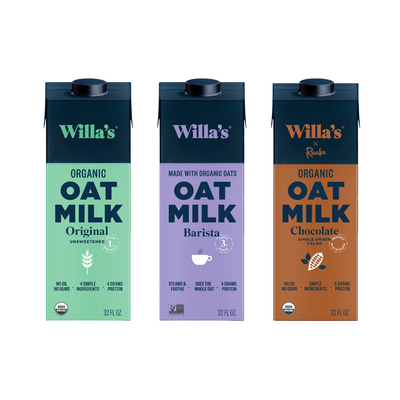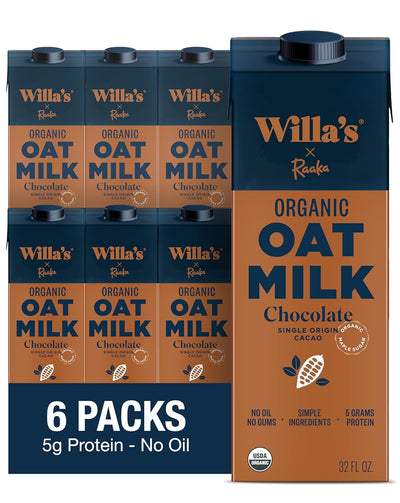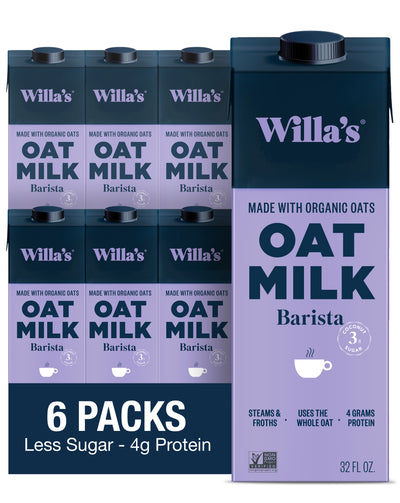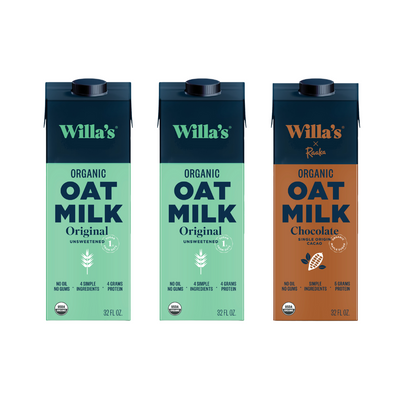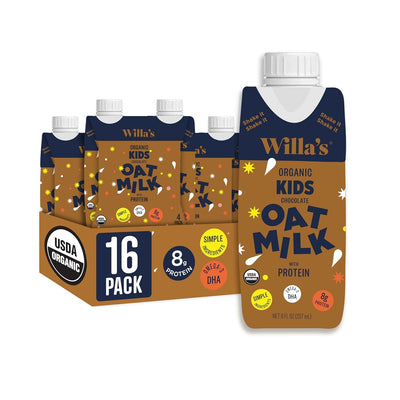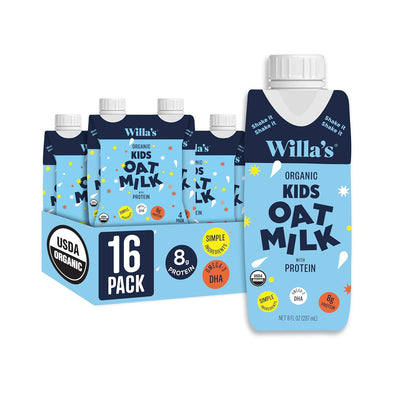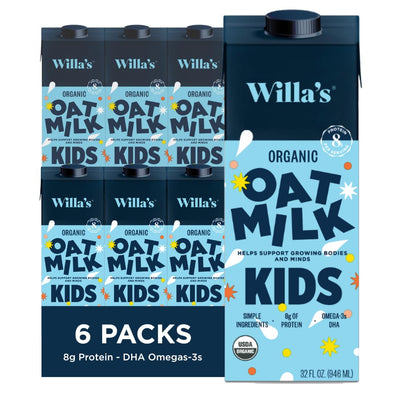How Do I Know What's in My Oat Milk?
Oat milk champions are quick to tell you that it’s delicious and oats are super nutritious, and they’re right. Thanks to their high fiber content, oats are associated with heart health, gut health, and even mental health. But not all oat milks are created equal. Some use an oat sugar base and don't have any protein or fiber at all, so it’s worth checking the ingredient list before assuming that a particular brand is made with the right stuff. And remember to check the serving size to be sure you’re comparing oats to oats!
Here’s what to look for (and look out for!) when assessing your oat milk options.
WHAT MAKES A GREAT OAT MILK
Organic Whole Grain Oats. It’s pretty obvious that oat milk should include oats, but we’re not talking just any oats. Look for an oat milk made with organic whole grain oats.
Why whole grain? Some oat milks only use the starchy, sugary part of the oat. However, using the entire oat, including the bran, the germ and endosperm, makes the end result higher in nutrients like vitamins, minerals, prebiotics, and fiber. Using the whole oat also means Willa’s has no waste in our production process. Win win!
And make sure your oats are certified USDA Organic. Unsafe levels of Roundup (aka glyphosate, a potent weed killer) have been found in non-organic and GMO oats.
Water. Clean and pure. Look for oat milks made with filtered water.
Organic Sunflower Oil or Organic Sunflower Lecithin. Unless you’re making it at home one serving at a time, a teeny bit of oil is needed to emulsify oat milk and keep the oats and water from separating. Many oat milks use rapeseed oil (aka canola oil), but canola oil is known to be inflammatory. Sunflower oil and lecithin are higher quality emulsifiers. Again, look for organic!
Willa's Barista Oat Milk uses cold-pressed, ‘high oleic’ sunflower oil, which means it is high in monounsaturated good fats, much like avocado oil. If you're looking to avoid oil altogether, Willa's Unsweetened Original and Dark Chocolate Oat Milks contain no oil at all.
Calcium Carbonate. Plant-based milks don’t have naturally occurring calcium the way cow’s milk does, but calcium is an essential nutrient that we need in our diets. Willa's Barista Oat Milk is fortified with calcium to supplement your recommended daily dose.
Organic Gum Acacia and Gellan Gum. Gum from the acacia tree and gellan gum, a fermented plant-based bacterium, are good plant-based alternatives if you’re looking to avoid stabilizers like carrageenan and gelatin.
Organic Real Vanilla Extract, Organic Cane Sugar, and Salt. Our Grandmother Willa found that a sprinkle of salt, a tiny bit of sugar, and a dash of vanilla extract make for the best-tasting oat milk, and we’re still following her recipe to this day. Willa's Barista Oat Milk has only 1 gram of natural sugars from whole grain oats and 2 grams of added maple sugar per serving. If you're looking for an even lower sugar option, Willa's Unsweetened Original Oat Milk has no added cane sugar, just the 1 gram of sugar from whole grain oats.
OAT MILK INGREDIENTS TO AVOID
Carrageenan. While this food additive is plant-based (it’s derived from seaweed), some forms have been found to cause major digestive issues.
Too much sugar. The tiniest hint of sugar brings out the natural oaty-ness of oats. Anything more tends to taste overly sweet — and negatively impact the nutritional quality of your oat milk. Willa’s Oat Milk has the lowest sugar content of any barista oat milk. In fact, we use less than half of the average 7 to 10 grams of sugar per cup.
Natural flavors. This label is essentially meaningless, so if you care about what goes into your food, you might want to skip it.
Check out our Oat Milk FAQ. If we haven’t covered your question there, send us a message and we’ll get on it.


